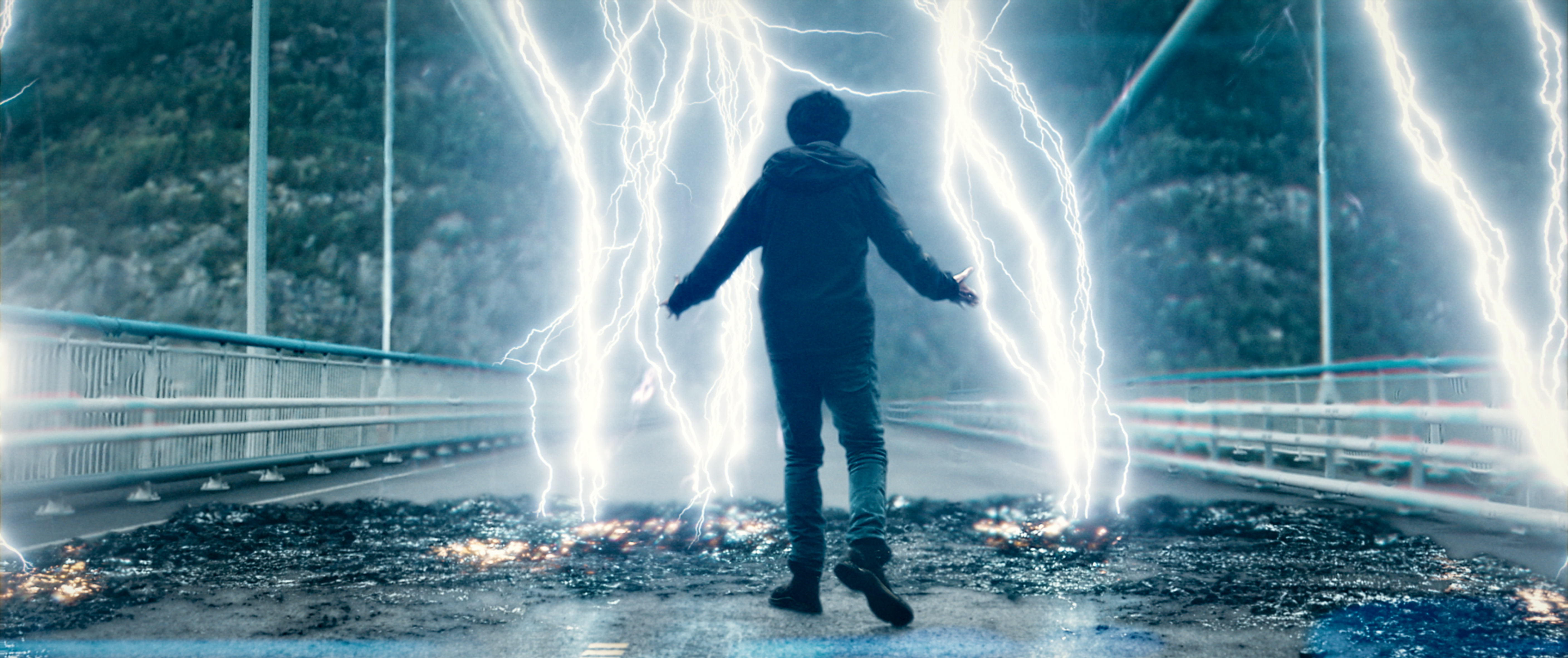What to Watch Verdict
There’s so much about it that feels commonplace and ordinary about 'Mortal' that it fails to live up to its extraordinary director.
Pros
- +
🚗Cool, low-budget effects work and scenarios.
- +
🚗Interesting thematic underpinnings for a superhero origin story.
Cons
- -
🚗The story beats are too rote and uninspired.
- -
🚗The characters are flat and lifeless.
- -
🚗Ends on an anticlimax that baits unlikely sequels.
André Øvredal is no stranger to taking a small budget and a handful of novel ideas and turning them into distinct and memorable pieces of modern cinema. The Autopsy of Jane Doe is rightly revered as a modern horror classic, and Scary Stories to Tell in the Dark is a remarkable exercise in weaving a seemingly unworkable premise into a solid piece of child-friendly horror. Unfortunately, the writer-director seems to have left some of that inspiration at the wayside with his latest, a non-horror venture entitled Mortal. It’s certainly a competently made film, but there’s so much about it that feels commonplace and ordinary that it fails to live up to its extraordinary director.
Eric (Nat Wolff) is an American drifter in Norway, avoiding people where he can because he keeps manifesting strange elemental powers that are beyond his ability to control. When accosted by some teenage hooligans, Eric inadvertently kills one of them simply by touching him, which lands him in police interrogation. There he meets the empathetic psychologist Christine (Iben Akerlie), who is able to break through his reclusive shell to see a man scared to death of what is happening to him. After a U.S. embassy agent (Priyanka Bose) attempts to take Eric into custody for return to the States, Eric finds himself on the run and reunites with Christine to return to the burned-out farmhouse where his powers first manifested.
Basically, it’s E.T. as a road trip movie, but instead of an alien and a child, it’s a confused adult man and a woman acting as the audience surrogate. There’s quite a bit that can be done with this basic premise, and to the film’s credit, there are some pretty neat instances where Eric’s powers are put to cool effect. Even though sometimes the nature of those powers is a little ambiguous – it’s not totally clear how he killed that teenager, nor is it readily apparent what’s happening when he causes someone to start choking later on – but his elemental manipulation of fire and electricity makes for some interesting twists in a high-speed chase and standoff that act as the second act centerpiece. We're not talking Marvel-level effects displays, but for such a small-scale story they are sufficiently awe-inspiring and inventive.
That just makes it all the more grating when the story and characters are so lacking in substance that it becomes difficult to feel emotionally invested in the spectacle. Without spoiling the ending, the plot ends up feeling like the beginning to a vaster and much more interesting story, something that should have been the first and second act of its own movie rather than the anticlimax of this one. Even then, the beats of Eric not knowing where his powers come from, learning to control them, and recognizing that his emotions are the biggest factor in controlling himself are all so rote and predictable that it’s difficult to see the film as anything more than a formulaic outline of a superhero origin story.
Formula is certainly not a killer in making a good film, but it needs something more to justify its reliance on form, and ultimately Øvredal’s (and co-writers Norman Lesperance's and Geoff Bussetil's) characters are much too shallow to give this story any emotional heft. Eric is defined solely by his fear of himself. Christine is an empathetic window to Eric’s humanity, and any internal life she has is solely in service of whether she chooses to help Eric or not. The embassy agent is willfully ignorant of Eric’s humanity, and a sheriff character (Per Frisch) is her foil. On paper, these are archetypes that work and are necessary for the kind of story being told, but in practice they feel either underwritten or underperformed, completely lacking in personality or humanity in a tale that is supposedly about what makes us human.
The most interesting and underexplored aspect of Mortal’s screenplay is in how it raises the possibility that Eric could be worshipped as a god for the otherworldly power he controls. That would be an interesting sociological and psychological theme to deconstruct for a modern superhero story, and Øvredal seems like he’s just on a cusp of cracking it as crowds of onlookers marvel at Eric's public displays of power. However, much like everything else that’s potentially interesting in this film, it’s subsumed by layers of flavorless tedium, not due to cinematic incompetence, but because of a complete lack of inspiration. We can only hope this is just a hiccup in Øvredal's oeuvre. We know he has it in him to be better than this.
Mortal will be available on VOD on November 6, 2020.
The latest updates, reviews and unmissable series to watch and more!
Leigh Monson has been a professional film critic and writer for six years, with bylines at Birth.Movies.Death., SlashFilm and Polygon. Attorney by day, cinephile by night and delicious snack by mid-afternoon, Leigh loves queer cinema and deconstructing genre tropes. If you like insights into recent films and love stupid puns, you can follow them on Twitter.


